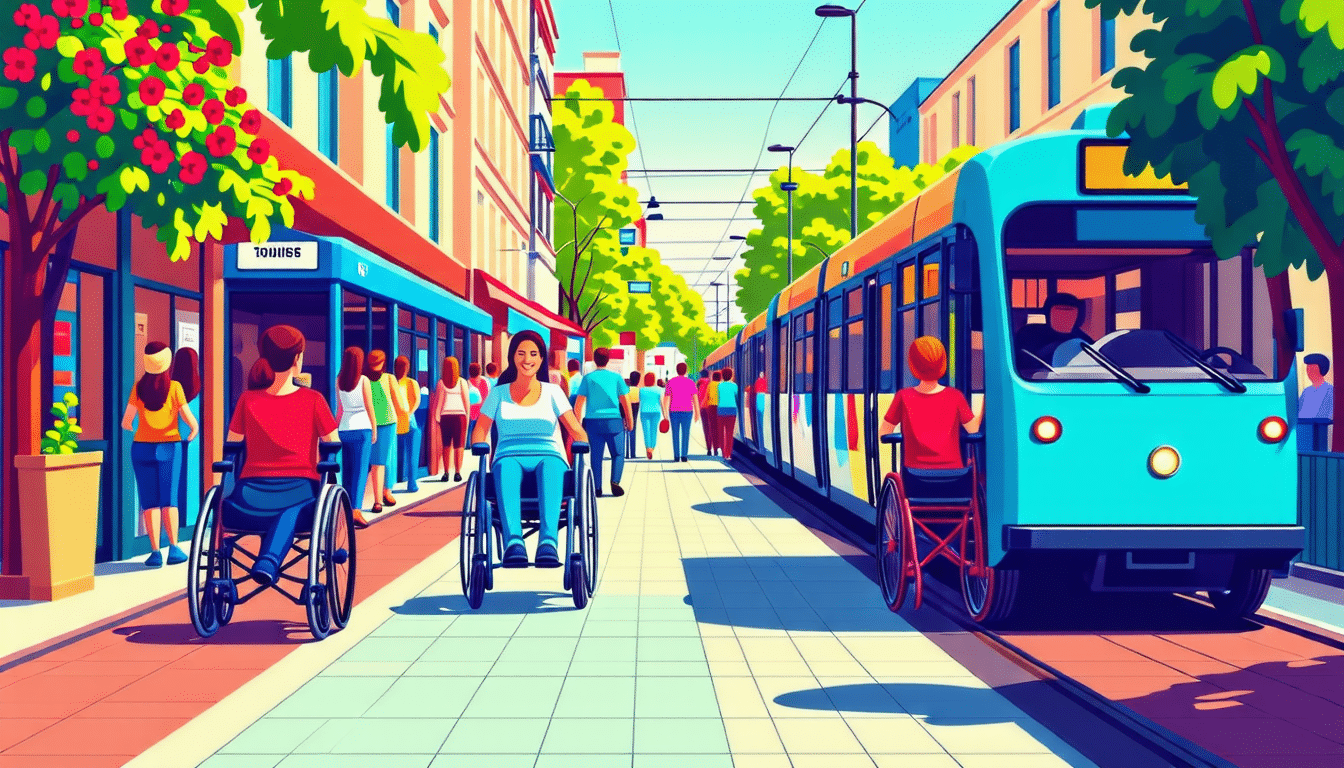|
IN SHORT
|
Inclusive tourism represents an essential approach to enable people with disabilities to travel and discover new destinations. It requires adaptations in infrastructure, services, and mindsets to ensure equal access for all. This article explores the challenges related to tourism and disability, while highlighting initiatives aimed at improving this travel experience for everyone.
À lire Discover the smallest river in France at the heart of one of Normandy’s gems
The Stakes of Inclusive Tourism #
The tourism sector faces major challenges regarding inclusivity. Approximately 15% of the global population lives with a disability, representing a significant potential for travelers. However, the obstacles these individuals encounter when they wish to travel are numerous. This includes inaccessible locations, a lack of suitable information, as well as the need for specific services to ensure their comfort and safety.
An Evolving Regulatory Framework
In France, the law requires establishments to make their services accessible for people with disabilities. This has led to the emergence of labels such as Tourism & Disability, which guarantee that measures compliant with accessibility standards are implemented. This label covers several types of disabilities, whether motor, visual, or auditory, thus paving the way for more inclusive tourism.
Assessing the Needs of Travelers
To provide an inclusive travel experience, it is crucial to assess the specific needs of people with disabilities. This involves regularly consulting users, asking for feedback on the services offered, as well as on modifications to be made. A proactive approach to inclusivity allows for anticipating potential problems and implementing viable solutions.
Initiatives and Practical Solutions #
Many initiatives are emerging to promote more inclusive tourism. For example, some organizations launch awareness campaigns aimed at educating the general public and industry professionals on the necessity of making their services accessible. Training on welcoming people with disabilities is also offered, contributing to the overall improvement of tourism practices.
À lire the United States issues a travel warning for Pakistan following a drone attack in India
Improving Access to Transportation
One of the main challenges of inclusive tourism lies in access to various modes of transportation. It is essential that public transport is adapted, with vehicles that are easy to access for people with reduced mobility. Booking platforms must also provide clear information on the accessibility of the proposed routes.
Adapting Accommodations
Accommodation establishments must also adapt to welcome travelers with disabilities. This includes accessible rooms, common areas, and specific facilities. Hotels that receive the Tourism & Disability label must meet a series of strict criteria, thus ensuring a comfortable and safe environment for all.
The Role of Technology in Inclusive Tourism #
Technological advancements play a crucial role in improving inclusive tourism. Mobile applications designed to assist travelers can provide information on the accessibility of different places, transportation, and attractions. This allows people with disabilities to plan their trips with confidence.
Towards a Collective Awareness
The tourism sector is beginning to recognize the importance of inclusivity. Events are regularly organized to discuss the issues faced by travelers with disabilities. Collaborations between the private sector, public authorities, and advocacy organizations help to advance this crucial issue.
À lire When SNCF faces the laughter of its competitors: a look at rivals and their destinations
Tourism and disability represent a challenge that requires the mobilization of all concerned actors. By adopting concrete measures and committing to a more inclusive system, the tourism sector can offer everyone the opportunity to explore the world without limits.


